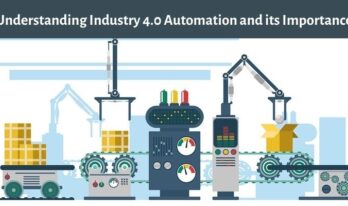Technology has arrived in the corporate world to stay. If transformations were gradual earlier, today they are a real revolution in all sectors of a company. Human Resources, a department of vital importance to any organization, could not be left out.
Before we talk about the benefits that technology has brought to the HR routine, let's take an overview of the concept of digital transformation.
Briefly, we can define digital transformation as a process of incorporating new technologies into the various organizational structures of the most diverse sizes and segments, with the aim of improving its performance, achieving better results, and thus achieving robust and sustainable growth.
Want to know the Benefits of digital HR? Keep reading!
Key benefits of Digital HR
With that been said, it’s time to shed some light on the key benefits of Digital HR
Often organizations fail to see the real proportion of the impact that Digital HR can have on employees' lives and the internal system of a business.
Much more than improving the routine of this sector, implementing this type of strategy undoubtedly changes the quality of the work performed by these professionals.
Implementing a digital HR means using technologies that will impact people's management, accelerate, and automate work that was previously done manually.
Access to Data and Performance Indicators
With all the information of the employees inserted in systems, HR can have access to this data more easily and quickly.
It can use them as a base to measure the progress of the teams and the individual performance of each employee. the creation of a company's motivational thermometer, and improvement activities.
This brings HR much agility in route correction and management of activities that can increase team engagement rates.
More effective Recruitment and Selection
Note that digital transformation puts HR at a level of more knowledge about the company itself and its employees.
This facilitates the recruitment and appropriate selection of talent since the profiles of professionals are already delimited and documented in a system.
Productivity
With more agile processes and lower failure rates, increased business productivity is guaranteed. The strategic HR becomes a reality within organizations: the decisions taken in that department impact everyone else, from production to management.
In addition, the digitalization of HR can help the professionals of this department to better understand the characteristics of each employee of the company offering them personalized ways of working according to the behavioral profile of each one.
This contributes to the well-being of these professionals and also to increase their productivity.
Some of the Top Digital HR Tools & Their Benefits
Investing in people management software is the main step in implementing digital HR in your company. This system integrates all important information for the department, making access to this data much faster and more efficient. Below mentioned are some beneficial tools for HR.
Paychex
HR departments have a lot of information to input, track, and store. The human resource management system (HRMS) is the most common method of organizing this information. Paychex organizes and stores data, such as attendance records, employee profiles, schedules and allow you to access performance evaluations, benefits management, and payroll services.
ADP Performance Management
ADP comes with a customizable performance review module. This tool gets the most out of a performance review and better formulate goals for individual employees. It helps HR to motivate and align the entire workforce. Managers can spend more time on strategy and less on paperwork as evaluation forms are automatically populated with the latest information.
YouEarnedIt
This tool allows you to recognize and reward co-workers when they exemplify company values. Below mentioned are some key benefits of this tool.
- Reveal and recognize the positive pulse of your company
- Improve connection and collaboration
- Give and receive meaningful experiences and rewards
Conclusion
In this context, HR's role is to create an adequate balance between the different processes, technological tools, and the quality of life of employees in their work environments. There are numerous tools that can help HR in certain ways.
But we'll talk more about it in the next topic.
Also Read:
Business Process Re-engineering and Change Management: Everything You Need to Know




